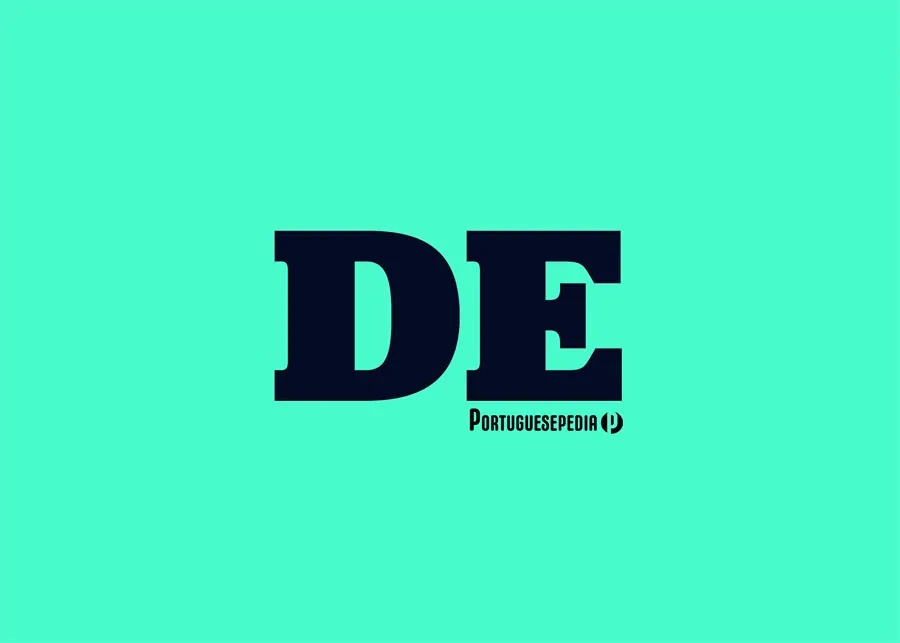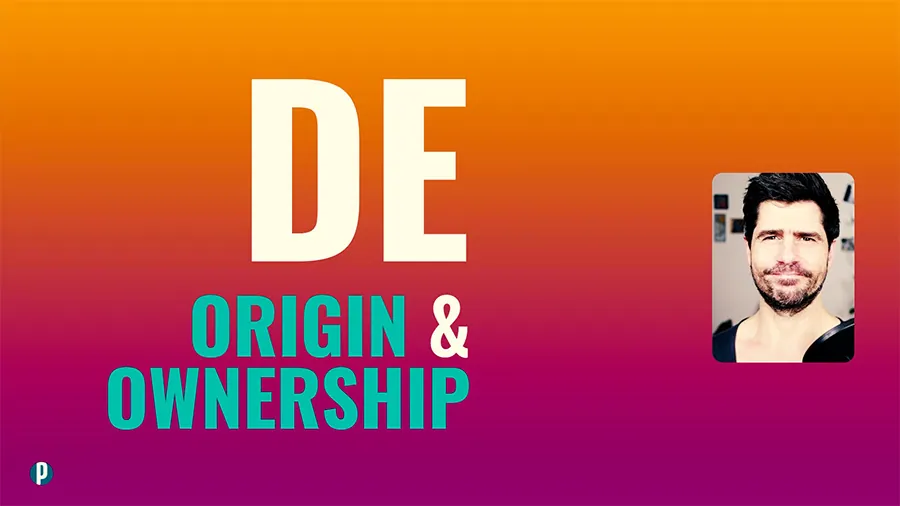
Portuguese Preposition ‘De’
The Portuguese preposition de is a preposition of origin and the Portuguese equivalent of from in English. Additionally, we use de to indicate possession, modify a noun, and express time, among others.
Let’s dive in.
Contracted forms
The preposition de merges with determiners, mostly articles, and demonstratives. Let’s take a look at its contracted forms.
de + articles
By default, de merges with any article following it:
| definite articles | o | a | os | as |
| contracted forms | do (de + o) | da (de + a) | dos (de + os) | das (de + as) |
| indefinite articles | um | uma | uns | umas |
| contracted forms | dum (de + um) | duma (de + uma) | duns (de + uns) | dumas (de + umas) |
Sometimes we won’t merge de with the indefinite articles. Thus, we often say and write de um instead of dum, or de uma instead of duma. Both are correct.
de + demonstratives
When preceding demonstrative determiners, de often melts with them in a contracted form:
| this | isto | este/s | esta/s |
| contracted forms | disto (de + isto) | deste/s (de + este/s) | desta/s (de + esta/s) |
| that | isso | esse/s | essa/s |
| contracted forms | disso (de + isso) | desse/s (de + esse/s) | dessa/s (de + essa/s) |
| that over there | aquilo | aquele/s | aquela/s |
| contracted forms | daquilo (de + aquilo) | daquele/s (de + aquele/s) | daquela/s (de + aquela/s) |
Other common contractions
| other | outro/s | outra/s |
| contracted forms | doutro/s (de + outro/s) | doutra/s (de + outra/s) |
| some | algum/alguns | alguma/s |
| contracted forms | dalgum/dalguns (de + algum) | dalguma/s (de + alguma) |
| someone | alguém | |
| contracted forms | dalguém (em + alguém) | |
| here/there | aqui | aí |
| contracted forms | daqui (em + aqui) | daí (de + aí) |
| he/she/they | ele/s | ela/s |
| contracted forms | dele/s (de + ele/s) | dela/s (de + ela/s) |
| where | onde | |
| contracted forms | donde (de + onde) | |
| before | antes | |
| contracted forms | dantes (de + antes) |
Usage
Origin
As we said in the introduction, de is first and foremost a preposition of origin:
| Eu venho do Paquistão. I come from Pakistan. Ela é do Minho. She’s from the Minho region. |
Possession
We use de in genitive constructions to indicate possession, much as we use the suffix’s in English:

Olá! I'm Pedro and I'm your Portuguese teacher.
Ready to unlock the beauty of European Portuguese? Portuguesepedia is your key! This all-in-one platform provides a wealth of learning resources, from bite-sized video lessons to immersive idiomatic dips. Perfect your pronunciation and aural comprehension with listening drills and solidify your grammar with in-depth articles. Start your Portuguese journey today!
Share this article
Get my guide "Key Strategies to Learn Portuguese" for FREE.

